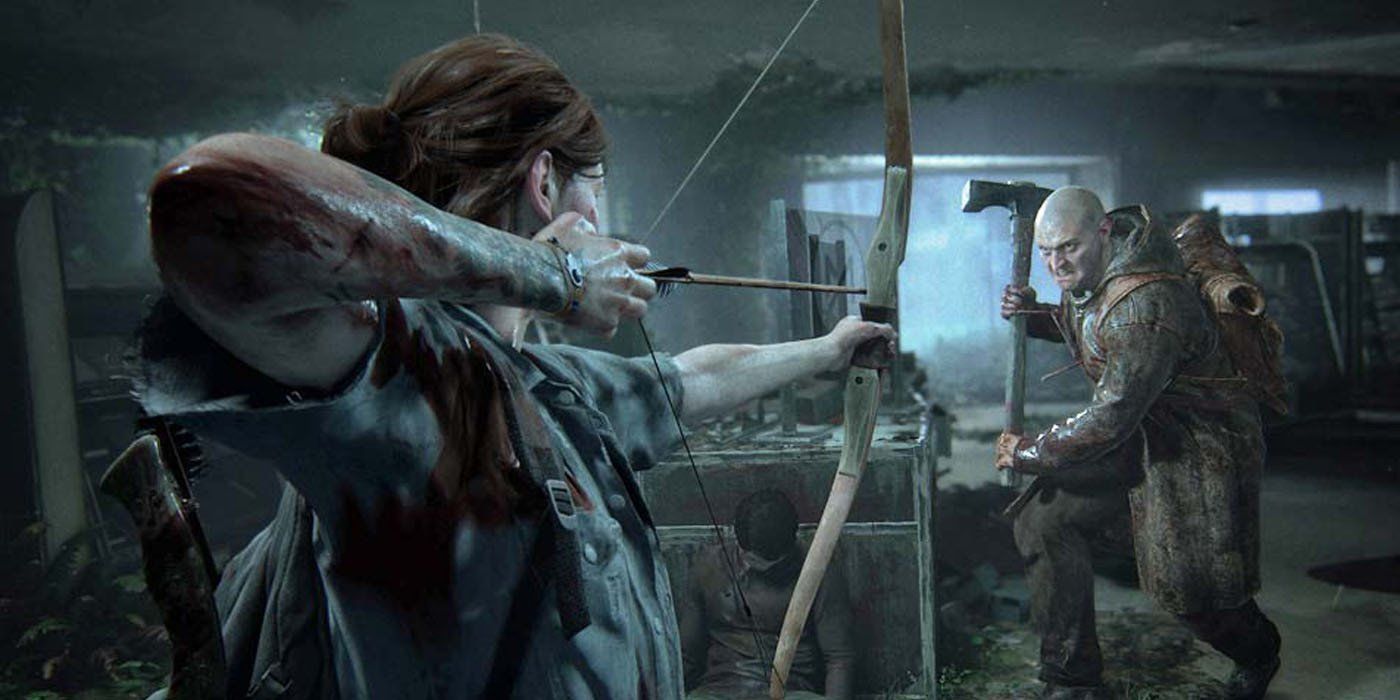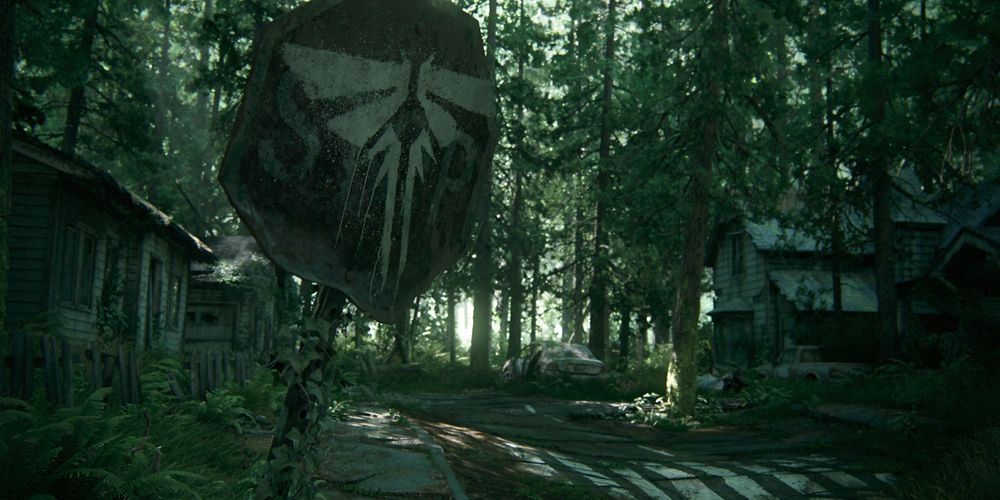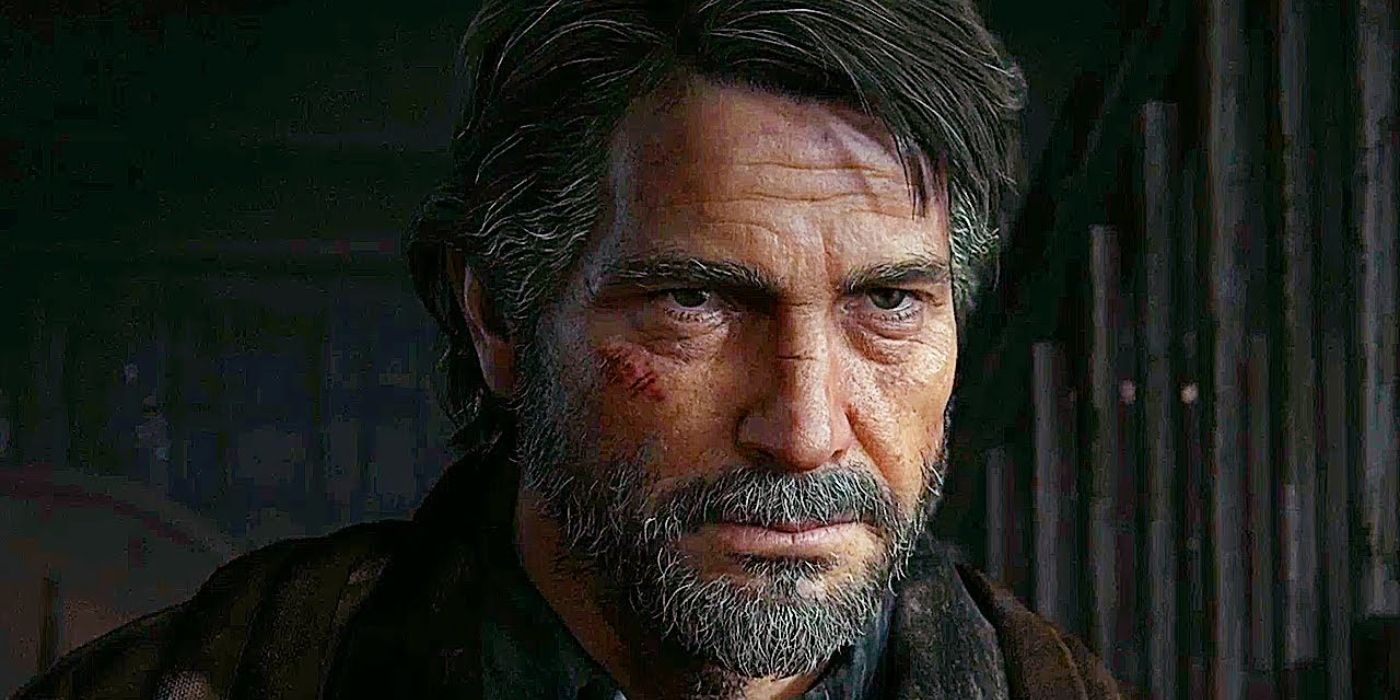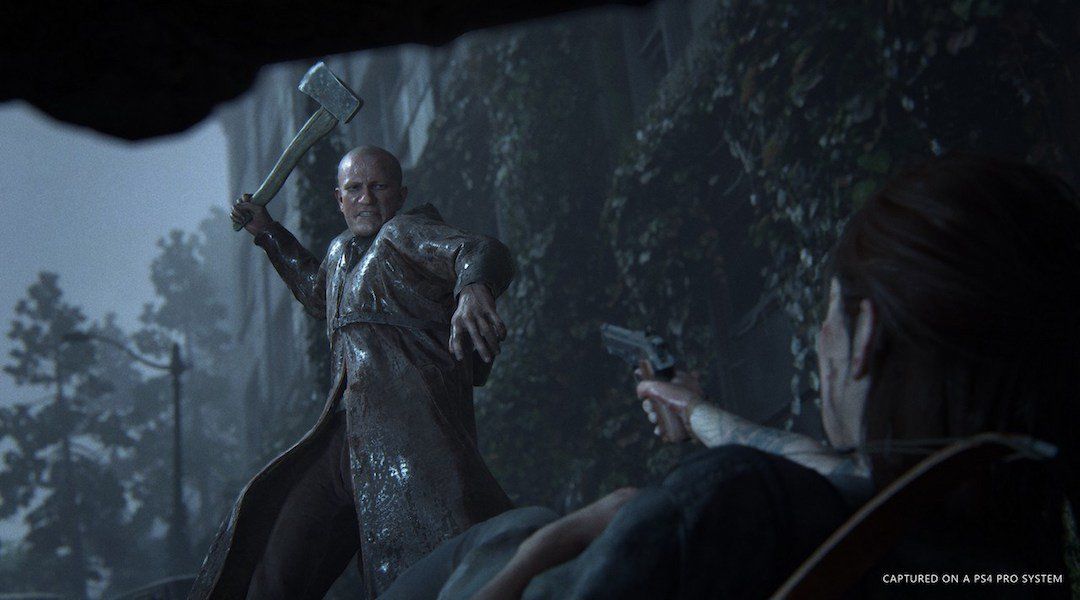
The Last of Us 2 is keeping fans waiting since it and many other games were delayed last October, but that has not stopped many super fans from digging through what is available and formulating ideas about the game. One such idea is that the new faction of human enemies in the upcoming game differ greatly from enemies from the previous game in a way that may be detrimental to the story: they seem far too easy to hate. While the central theme of the anticipated sequel is surely to be vengeance and hatred, some fans feel that making it too easy to hate these enemies will detract from the nuance fans felt in The Last of Us.
For those unaware, The Last of Us 2 pits the player and Ellie against a new group of human enemies, the Seraphites. These enemies are characterized by some kind of religious zealotry which drives them to string up and mercilessly kill people. Ellie is at odds with them presumably because they play a part in whatever happens to Dina that makes Ellie so angry, but this is not why they are so unlikable. Although it is certainly the driving force behind Ellie's actions, the player may feel more easily justified in killing these foes due to the reason for their actions.

In The Last of Us, the player encounters numerous factions and groups of survivors who do or have done unspeakable things which they see as justified. The military ruthlessly kill people in an attempt to maintain order, the hunters gun down "tourists" for supplies with no remorse as a method of survival, and David's crew go so far as cannibalism to facilitate the survival of their group. All of these groups have something in common, though, because the terrible things they do are justified in their minds as a means to an end.
Even the Fireflies try to murder Ellie in an attempt to find a cure. While their end goal is valiant and hard to question, their method is clearly immoral. The fireflies are faced with making a choice between the lesser of two evils, and ultimately end up dead because their choice differed from Joel's. Although players may have found themselves in a sort of blind rage during the final sequences of the game, most would agree that the fireflies in a sense had the right idea, and committed to doing something so terrible for the greater good.

Joel is perhaps the perfect example of this concept. The player knows Joel has done terrible things, as is indicated by his conversations with Tess and Ellie. It seems that his smuggling business with Tess was less than moral, and he outright admits to Ellie that he was once a Hunter, doing terrible things to ensure the survival of his brother and himself. What's more, numerous times throughout the story Joel does some unforgivable things, like torturing and killing members of David's group to find Ellie or brutally murdering a room full of unarmed surgeons and stealing away the only hope humanity has left for a cure.
Yet despite all of this, most players don't view Joel as a bad guy, but as a human. Joel's mistakes and grievances are entirely human things, and although this doesn't justify his actions, they put them into perspective and make them harder to damn. Likewise, even more outright hated factions like David's group have this humanity which instills the player with uncertainty as they carry out their actions. There are few who would say that David did not deserve what he got, but sneaking around the base as Ellie and hearing members of his group talking about taking the children to the shelter and such certainly makes one stop to think about their actions.

The Last of Us 2 does not sacrifice this humanity. Every character in the game has a name, and their companions will react realistically if they are killed. This feature was shown in the The Last of Us 2's gameplay trailer and has been talked about in great detail, but may not be enough to make these new enemies relatable. The problem with these foes is that it seems what they do is based purely off some kind of religious zealotry rather than any kind of survival needs or the greater good.
It is almost certain that this faction views what they are doing as the greater good, but this time it is objectively not. At least with previous foes, players could empathize even slightly with the enemies' reasoning behind their actions. Everyone knows cannibalism is wrong, but if it is the only means of survival, it is easier to understand how it could be considered a necessary evil. Conversely, the Seraphites are much harder to empathize with, because their actions not only are clearly wrong, but they hardly benefit the Seraphites either, being purely destructive in nature. And with little reason besides some kind of ambiguous religion, it won't be easy to convince players to care about these enemies.
One of the most important things to understand about The Last of Us is that there is no good and evil, and there is hardly any right or wrong. Morality is completely gray in the original game, and intentionally so. It's clear that Joel is not a hero, and there are no obvious "bad guys," no villain that needs to be defeated, and even the game's main threat, the cordyceps fungus, is really a force of nature and not evil in any way. Hopefully, The Last of Us 2 maintains this trend by making their antagonists feel less like villains and more like people.
The Last of Us 2 is still looking to be a promising, emotional, and enjoyable title nonetheless, and fans should expect no less from Naughty Dog, which has proved itself many times. There is bound to be more than just this one faction as well, so even if this group remains illogically zealous, it likely won't ruin the game which should otherwise be great. Either way, Ellie's vengeance will be exacted, and it will be up to the player to make sure that this quest is successful, even if they have to battle their way through humans and those infected by the cordyceps virus alike.
The Last of Us 2 will be available on May 29th exclusively for PS4.
from Game Rant - Feed https://ift.tt/2tY0TCo
Comments
Post a Comment